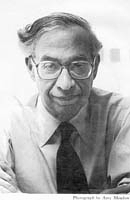
Donald Allen Wollheim was an American science fiction editor, publisher, writer, and fan. As an author, he published under his own name as well as under pseudonyms, including David Grinnell, Martin Pearson, and Darrell G. Raynor. A founding member of the Futurians, he was a leading influence on science fiction development and fandom in the 20th-century United States. Ursula K. Le Guin called Wollheim "the tough, reliable editor of Ace Books, in the Late Pulpalignean Era, 1966 and '67", which is when he published her first two novels in Ace Double editions.

The Mythopoeic Awards for literature and literary studies are given annually for outstanding works in the fields of myth, fantasy, and the scholarly study of these areas. Established by the Mythopoeic Society in 1971, the Mythopoeic Fantasy Award is given for "fiction in the spirit of the Inklings", and the Scholarship Award for non-fiction work. The award is a statuette of a seated lion, with a plaque on the base. It has drawn resemblance to, and is often called, the "Aslan".

Fantasy literature is literature set in an imaginary universe, often but not always without any locations, events, or people from the real world. Magic, the supernatural and magical creatures are common in many of these imaginary worlds. Fantasy literature may be directed at both children and adults.
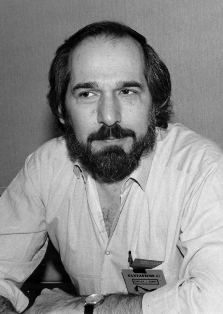
Charles Lewis Grant was an American novelist and short story writer specializing in what he called "dark fantasy" and "quiet horror". He also wrote under the pseudonyms of Geoffrey Marsh, Lionel Fenn, Simon Lake, Felicia Andrews, Deborah Lewis, Timothy Boggs, Mark Rivers, and Steven Charles.

Julie E. Czerneda is a Canadian science fiction and fantasy author. She has written many novels, including four Aurora Award for Best Novel winners, and a number of short stories; she has also edited several anthologies.
Martin Harry Greenberg was an American academic and anthologist in many genres, including mysteries and horror, but especially in speculative fiction. In all, he compiled 1,298 anthologies and commissioned over 8,200 original short stories. He founded Tekno Books, a packager of more than 2000 published books. He was also a co-founder of the Sci-Fi Channel. Greenberg was also an expert in terrorism and the Middle East. He was a longtime friend, colleague and business partner of Isaac Asimov.
Fiona Patton is a Canadian fantasy author. She has written more than 50 short stories including within the genres heroic fantasy, horror and science fiction and is well known for her The Warriors of Estavia series.

Elements of the supernatural and the fantastic were an element of literature from its beginning. The modern genre is distinguished from tales and folklore which contain fantastic elements, first by the acknowledged fictitious nature of the work, and second by the naming of an author. Works in which the marvels were not necessarily believed, or only half-believed, such as the European romances of chivalry and the tales of the Arabian Nights, slowly evolved into works with such traits. Authors like George MacDonald (1824–1905) created the first explicitly fantastic works.
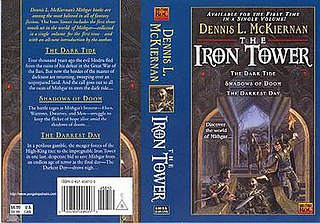
Dennis L. McKiernan's The Iron Tower is a high fantasy saga set in his world of Mithgar. Originally published as a trilogy in 1984, and later released as an omnibus, the work was amongst his first.
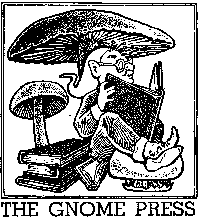
Gnome Press was an American small-press publishing company primarily known for publishing many science fiction classics. Gnome was one of the most eminent of the fan publishers of SF, producing 86 titles in its lifespan — many considered classic works of SF and Fantasy today. Gnome was important in the transitional period between Genre SF as a magazine phenomenon and its arrival in mass-market book publishing, but proved too underfunded to make the leap from fan-based publishing to the professional level. The company existed for just over a decade, ultimately failing due to inability to compete with major publishers who also started to publish science fiction. In its heyday, Gnome published many of the major SF authors, and in some cases, as with Robert E. Howard's Conan series and Isaac Asimov's Foundation series, was responsible for the manner in which their stories were collected into book form.

Cemetery Dance Publications is an American specialty press publisher of horror and dark suspense. Cemetery Dance was founded by Richard Chizmar, a horror author, while he was in college. It is associated with Cemetery Dance magazine, which was founded in 1988. They began to publish books in 1992. They later expanded to encompass a magazine and website featuring news, interviews, and reviews related to horror literature.
John Gregory Betancourt is an American writer of science fiction, fantasy and mystery novels, as well as short stories. He is also known as the founder and publisher, with his wife Kim Betancourt, of Wildside Press in 1989. In 1998, they entered the print on demand (PoD) market and greatly expanded their production. In addition to publishing new novels and short stories, they have undertaken projects to publish new editions of collections of stories that appeared in historic magazines.

Mythago Wood is a fantasy novel by British writer Robert Holdstock, published in the United Kingdom in 1984. Mythago Wood is set in Herefordshire, England, in and around a stand of ancient woodland, known as Ryhope Wood. The story involves the internally estranged members of the Huxley family, particularly Stephen Huxley, and his experiences with the enigmatic forest and its magical inhabitants. The conception began as a short story written for the 1979 Milford Writer's Workshop; a novella of the same name appeared in the September 1981 edition of The Magazine of Fantasy & Science Fiction.
Robert Edward Weinberg was an American author, editor, publisher, and collector of science fiction. His work spans several genres including non-fiction, science fiction, horror, and comic books.
Al Sarrantonio is an American horror and science fiction writer, editor and publisher who has authored more than 50 books and 90 short stories. He has also edited numerous anthologies and has been called "brilliant" and "a master anthologist" by Booklist.
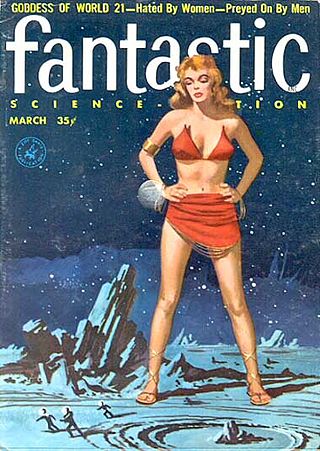
Henry Slesar was an American author, playwright, and copywriter. He is famous for his use of irony and twist endings. After reading Slesar's "M Is for the Many" in Ellery Queen's Mystery Magazine, Alfred Hitchcock bought it for adaptation and they began many successful collaborations. Slesar wrote hundreds of scripts for television series and soap operas, leading TV Guide to call him "the writer with the largest audience in America."
These works were written or edited by the American fiction writer Andre Norton. Before 1960 she used the pen name Andrew North several times and, jointly with Grace Allen Hogarth, Allen Weston once.
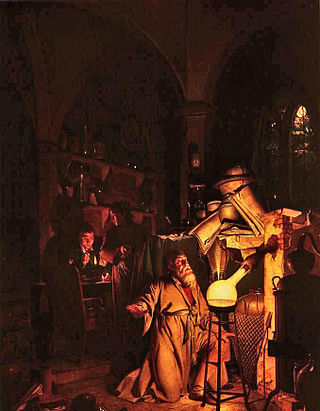
Elements of the supernatural and the fantastic were an element of literature from its beginning, though the idea of a distinct genre, in the modern sense, is less than two centuries old.
This is the bibliography of American space opera and hard science fiction author Catherine Asaro.
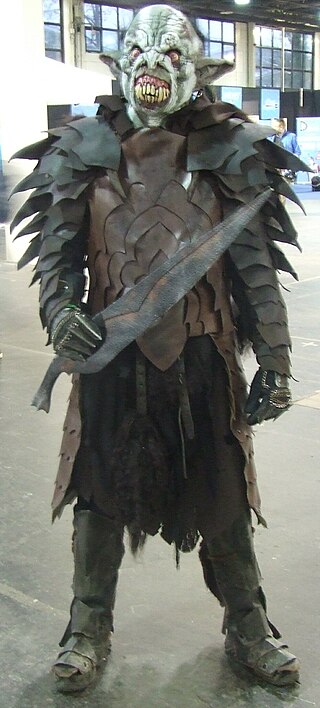
Although fantasy had long existed in various forms around the world before his time, J. R. R. Tolkien has been called the "father of fantasy". His novel The Lord of the Rings, published in 1954–5, enormously influenced fantasy writing, establishing in particular the form of high or epic fantasy, set in a secondary or fantasy world in an act of mythopoeia. The book was distinctive at the time for its considerable length, its "epic" feel with a cast of heroic characters, its wide geography, and its battles. It involved an extensive history behind the action, an impression of depth, multiple sentient races and monsters, and powerful talismans. The story is a quest, with multiple subplots. The novel's success demonstrated that the genre was commercially distinct and viable.












